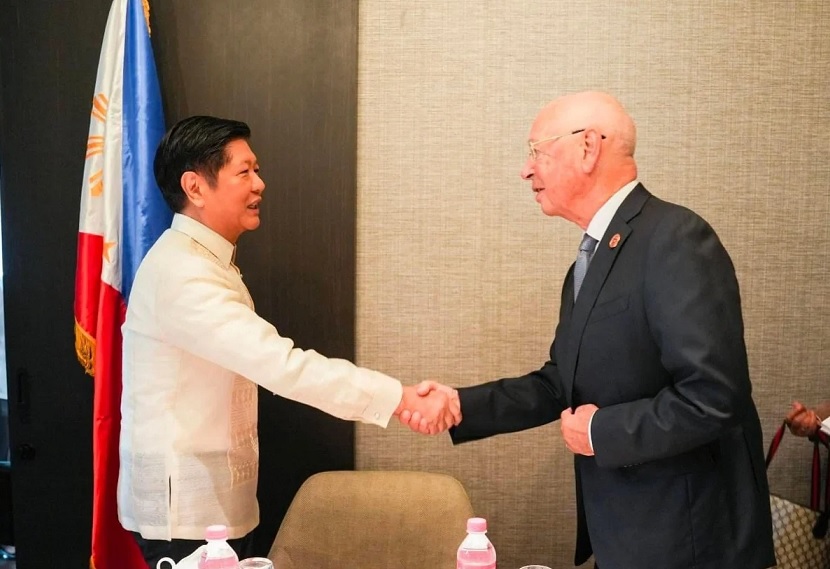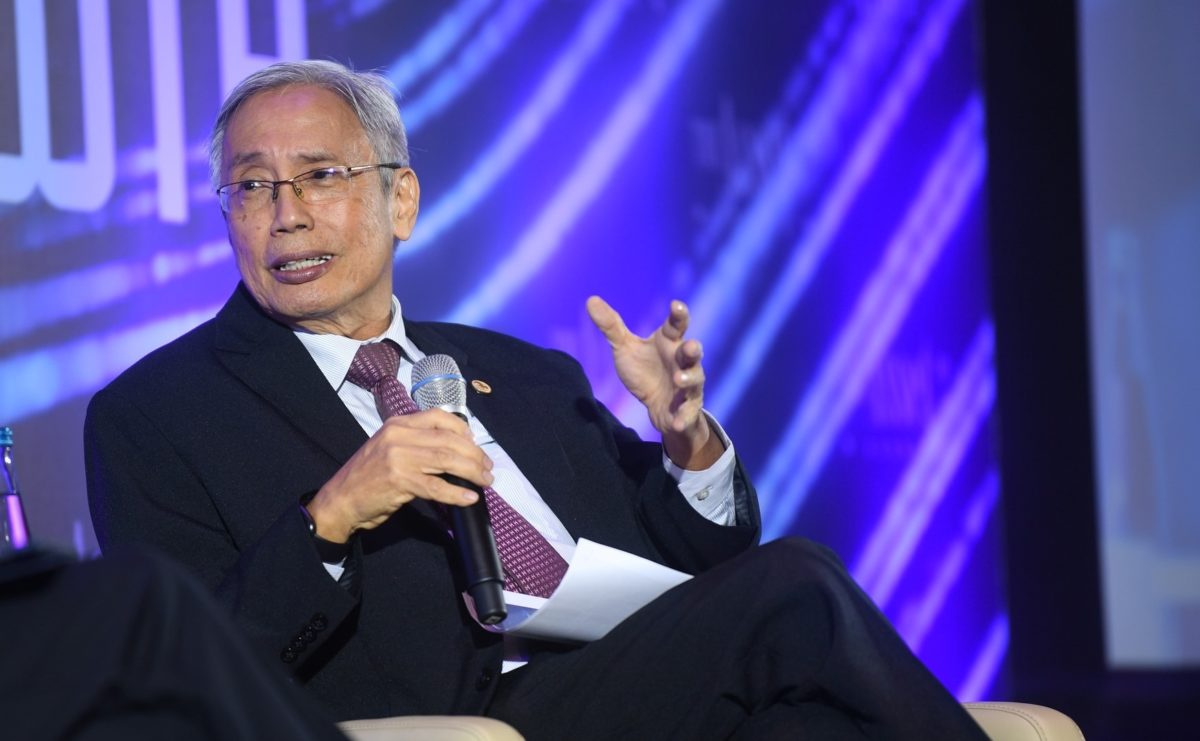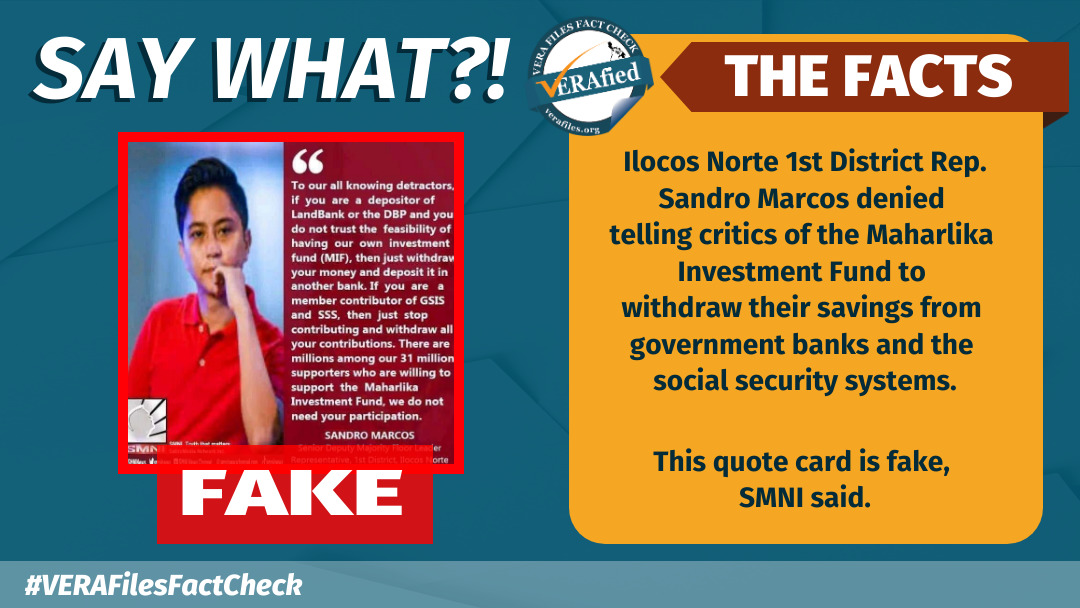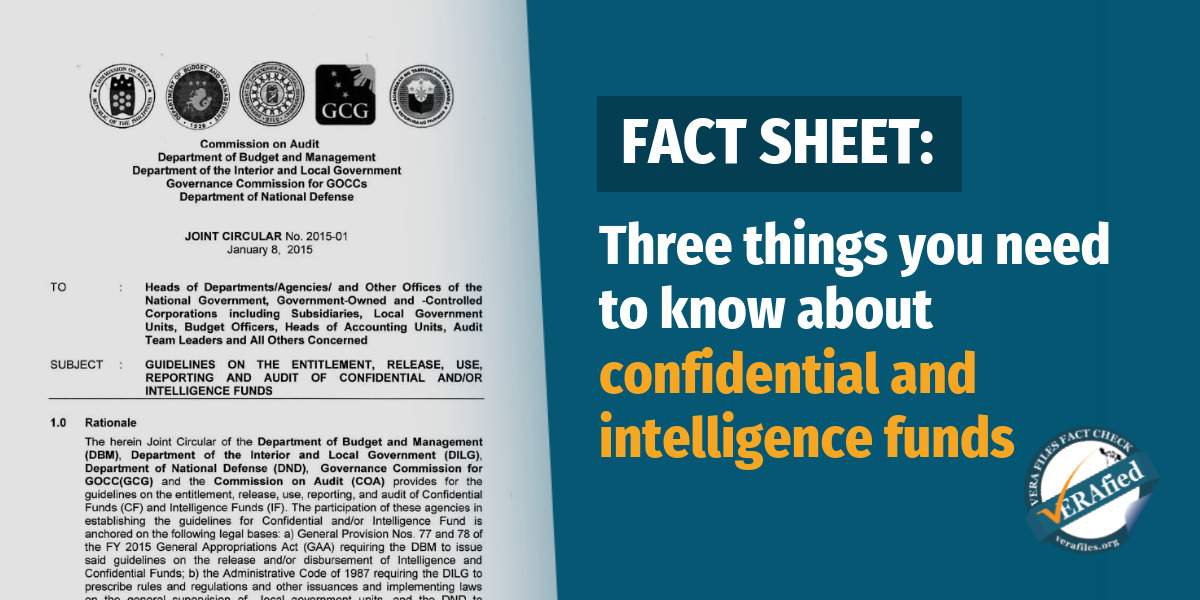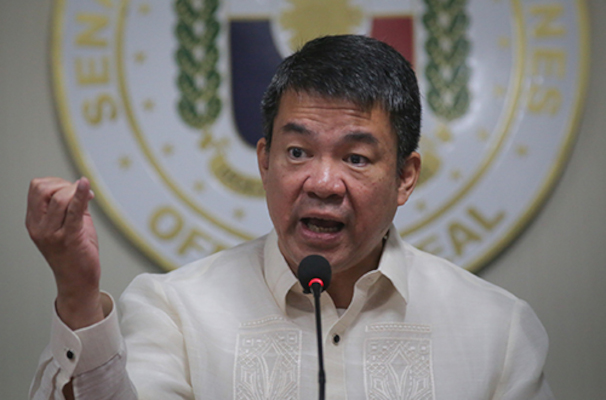Even after Congress has approved the bill creating the multibillion-peso Maharlika Investment Fund (MIF), questions about its constitutionality remain, particularly on President Ferdinand “Bongbong” Marcos Jr.’s reason certifying it as urgent.
Opposition lawmakers Aquilino “Koko” Pimentel III and Risa Hontiveros, who view the bill in its current form as “unacceptable” and “not what [Filipinos] need” respectively, expressed willingness to back efforts to challenge the measure before the Supreme Court (SC).
Two days before the Senate passed the bill on third and final reading, Pimentel questioned the basis for certifying the bill as urgent.
Under the 1987 Constitution, the president can fast track the legislative process by certifying a measure as urgent to meet a public calamity or emergency. This means a bill can be approved on second and third readings on the same day.
Interpellating Sen. Mark Villar, the bill’s sponsor, Pimentel asked:
“The question which comes to our mind is, what is the necessity for the immediate enactment or what is the public calamity or emergency which will be met by the immediate enactment of this measure?”
Source: Senate of the Philippines, Senate Session No. 75, May 29, 2023, watch from 3:10:40 to 3:11:07
Villar replied:
“The determination of urgency is something that is done by the Executive. It’s a matter that is purely Executive and I’m sure they have access to information in order to make such a determination.”
Source: watch from 3:11:16 to 3:11:42
The lawmaker added that poverty is a matter of urgency, noting a “marked increase” in the number of poor Filipinos in the last three years. He explained:
“The emergency may not necessarily be physical but it could be a financial, social, or economic emergency, which is, I believe, I can’t think of many situations that would be more urgent than the increase in poverty on the scale of millions of Filipinos.”
Source: watch from 3:14:11 to 3:14:34
What emergency does the MIF seek to address urgently? What is considered a public calamity or an emergency? Is poverty an emergency? Here are four things you need to know:
1. What emergency does the MIF seek to address urgently?
The president, who claims he first thought of the investment fund, cited the need for a “sustainable” national investment fund to bankroll the government’s P8.2-trillion “high-impact” infrastructure projects that the administration hopes would boost economic activity and development.
He pointed out other factors that “compel” the need for the investment fund such as:
- downgrade of the global growth projection this year on account of the debilitating inflation;
- fluctuating and unstable prices of crude oil and other fuels due to the Ukraine-Russia conflict; and,
- continuing interest rate hikes in the international financial sector.
Source: CNN Philippines, Marcos certifies as urgent Maharlika bill at Senate, May 24, 2023; Philstar,com, Marcos certifies as urgent Senate bill creating Maharlika fund, May 24, 2023; ABS-CBN News, Marcos certifies as urgent Maharlika fund bill in Senate, May 24, 2023
Finance Secretary Benjamin Diokno said last year that the government plans to be “opportunistic” in borrowing from foreign sources and rely more on domestic borrowings, recorded at P9.51 trillion in March this year.
2. What are the considerations in certifying a bill as urgent?
Section 26, Article VI of the Constitution empowers the president to certify a bill as urgent “to meet a public calamity or emergency.”
The country’s presidents before Marcos Jr. exercised this power to push legislation. Some of these were:
- the bill standardizing and upgrading the benefits for military veterans and their dependents by Corazon Aquino;
- the law creating the Department of Energy by Fidel V. Ramos
- the bill placing police under the management of local chief executives by Joseph Estrada;
- the law repealing the death penalty by Gloria Macapagal-Arroyo;
- the Reproductive Health Act by Benigno “Noynoy” Aquino III;
- the Anti-Terror Act by Rodrigo Duterte.
Over the last century, the country’s leaders had declared a state of public calamity or emergency to accelerate relief and rehabilitation efforts in certain localities in the aftermath of earthquakes, terror attacks, or devastating fires.
However, a public calamity and emergency differ in definition:
Senators, in the course of advocating for bills, have considered other problems as public calamity or emergency. Sen. Grace Poe, for instance, said in 2016 that the traffic and congestion crisis in Metro Manila and Cebu had assumed the “nature and magnitude” of a public calamity.
3. How did the Supreme Court decide on previous petitions that argued against the certification of certain bills as urgent?
Over the past years, citizens have challenged the certification as urgent of a bill – that had become law – before the Supreme Court. The High Court ruled in favor of the law, at least twice.
For instance, the Ramos administration in 1994 enacted the Expanded Value-Added Tax (EVAT) law which sought to “find more money to invest in the country” by widening the coverage of the tax. It also allowed the government to collect VAT on more goods, including imported products and services rendered across the country, such as taxi cab driving and hotel keeping.
Petitioners argued against the merits of the law and its certification as urgent by then-president Ramos.
They noted that the budget deficit was not an emergency that could be met by the EVAT law.
The High Court, however, ruled that:
“Even if this were the case, an enormous budget deficit does not make the need for R.A. No. 7716 any less urgent or the situation calling for its enactment any less an emergency.
Source: Supreme Court E-Library of the Philippines, G.R. No. 115455, Oct. 30, 1995
The magistrates then pointed out that the members of the Senate, including some of the petitioners in the case, believed there was an urgent need for the law because they passed the bill on its second and third readings on the same day.
For this reason, the SC explained:
“While the judicial department is not bound by the Senate’s acceptance of the President’s certification, the respect due coequal departments of the government in matters committed to them by the Constitution and the absence of a clear showing of grave abuse of discretion caution a stay of the judicial hand.”
Source: Supreme Court E-Library of the Philippines, G.R. No. 115455, Oct. 30, 1995
4. Is poverty a matter of emergency?
“The problem of this widespread poverty being so large and entrenched should not be taken as detracting from the urgency of addressing this. While ‘urgency’ is normally seen as time sensitive, the daily effect on so many Filipinos for decades and for generations is arguably a strong case for urgent action,” Sonny Africa, executive director of IBON Foundation, told VERA Files Fact Check in an email.
In 2022, the Philippine Statistics Authority reported that 19.99 million Filipinos fell below the country’s poverty threshold, living on about P12,000 per month for a family of five, according to their 2021 Family Income and Expenditure Survey.
Africa said this figure is probably grossly underestimated, noting that the number of Filipino adults with savings dropped from 53% to 37% in 2021. In addition, 14 million families reported themselves as poor, based on a Social Weather Stations survey in March 2023.
However, Africa said the MIF bill is far from the correct response to poverty given that it is meant to fund infrastructure and yield high financial returns.
He explained:
“The connections to fixing immediate poverty are dubious. The benefits from infrastructure are indirect, felt mainly by those in their immediate proximity, and will take time as whatever facilities concerned are built. […] This is in no way an immediate response to urgent poverty.”
Africa also pointed out that sovereign wealth funds in the world earned below 8.6% annually, disputing Villar’s claim on the rate of return on the proposed MIF.
For instance, Norges Bank Investment Management which manages Norway’s Government Pension Fund Global, reported an annual return of only 5.7% from 1998 to 2022.
“The lack of interest of the MIF in addressing poverty can also be seen in the conspicuous absence of any provisions or clarity about how its earnings, if any, are going to be spent,” Africa added.


